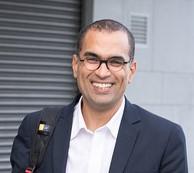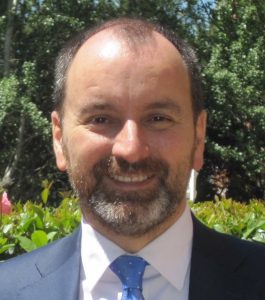ERSA2019 Call for Abstracts is OPEN, Confirmed Keynotes, highlight on the Road to Lyon next Stop
|
The Annals of Regional Science, Vol. 61, Issue 3 - New Issue Alert
We are pleased to deliver your requested table of contents alert for The Annals of Regional Science. Volume 61 Number 3 is now available online.
Spatial Aspects of Entrepreneurship and Innovation
In this issue
Special Issue Editorial
Spatial aspects of entrepreneurship and innovation
Xiyi Yang & David Emanuel Andersson
Special Issue Paper
Choosing cities: a behavioural economic approach
Marek Banczyk, Joanne Laban & Jason Potts
Special Issue Paper
The income return to entrepreneurship: theoretical model and outcomes for Swedish regions
Björn Hårsman, Lars-Göran Mattsson & Vardan Hovsepyan
Correction
Björn Hårsman, Lars-Göran Mattsson & Vardan Hovsepyan
Special Issue Paper
Inside and outside the black box: organization of interdependencies
Åke E. Andersson & Börje Johansson
Special Issue Paper
Agglomeration near and far, the case of Southern California: supply chains for goods and ideas
Peter Gordon & John Cho
Special Issue Paper
Innovation networks and cluster dynamics
Benoît Desmarchelier & Linjia Zhang
Special Issue Paper
The determination of the “true” property boundary in planned development: a Coasian analysis
Lawrence W. C. Lai, Stephen N. G. Davies, K. W. Chau, Ken S. T. Ching, Mark H. Chua, H. F. Leung & Frank T. Lorne
Do you want to publish your article in this journal?
Please visit the homepage of The Annals of Regional Science for full details on:
- aims and scope
- editorial policy
- article submission
Impact Factor: 1.336 (2017)
Journal Citation Reports®, Clarivate Analytics
Call for Papers | TIMTED 2019, June 6-8, 2019 - Timișoara, Romania
Call for Papers
International Economic Conference - TIMTED 2019
“Current Economic Trends in Emerging and Developing Countries” Timișoara, ROMANIA
June 6-8, 2019
Dear colleagues,
We are pleased to invite you to participate at the International Conference TIMTED 2019 “Current Economic Trends in Emerging and Developing Countries”, organized by the Faculty of Economics and Business Administration, West University of Timisoara, and the East-European Center for Research in Economics and Business (ECREB) in Timișoara, Romania on June 6-8, 2019.
Please find attached the Call for papers for TIMTED 2019 and visit the Conference website for more details:
We look forward to receiving your paper before March 20, 2019.
For registration and submission:
https://www.timted.ro/registration-timted2019/
Hope to see you soon at the TIMTED 2019!
On the behalf of the Organizing Committee,
Professor PhD habil. SÎRGHI Nicoleta
E-mail: This email address is being protected from spambots. You need JavaScript enabled to view it.
Call for Papers | 2nd Urban and Regional Economics Workshop, 10-12 July, 2019 - Bogotá, Colombia
Call for papers
Cities and regions around the world face immense challenges and play a starring role in this chan- ging economic environment. Topics on urban and regional economics are thus crucial in our understanding of the economic dynamics, in particular in Latin America, where urban problems loom very large in many countries. The Pontificia Universidad Javeriana, in collaboration with the Banco de la República, has established an environment to promote advances in this area of knowledge through the presentation and discussion of academic research.
The workshop will welcome papers on, but will not be limited to: Location theory, congestion pricing, housing markets, environmental impacts of public policies, efficient public good provi- sion, regional integration, urban spatial structure, urban networks, infrastructure in cities and regions, migration, and segregation and gender in cities. Furthermore, acknowledging the impor- tance of the implementation of the recent peace agreements in Colombia, special attention will be given to papers dealing with the role of cities, regions, and development strategies in the after- math of the conflict.
Both empirical and theoretical papers are welcome.
The program will include key note presentations from invited speakers. Mathew Turner (Brown University), Gilles Duranton (University of Pennsylvania), Mark D. Partridge (Ohio State), Yves Zenou (Monash University), Elisabet Viladecans – Marsal (Universidad de Barcelona), Diego Puga (CEMFI) and Giovanni Peri (University of California, Davis) are among the distinguished urban and regional economists who have confirmed attendance.
Format
Accepted papers will be presented in parallel sessions. Every paper will be discussed by one peer and every presenter will have the responsibility to discuss one paper. Papers must be presented and discussed in English.
Submission
Submissions will open on September 1st. We encourage Ph.D. students and scholars around the world to submit their original research papers until February 1st , 2019, through conference maker at: https://editorialexpress.com/cgi-bin/conference/conference.cgi?action=login&db_name=URworkshop2019
Notification of acceptance will be sent by March 1st.
Registration fees
There will be a registration fee of US$ 250 for attendees and presenters (US$150 for students). All travel and accommodation expenses should be covered by each attendee. The fee includes lunch, refreshments and a farewell dinner for all participants.
Program committee
Paula Herrera-Idárraga (Pontificia Universidad Javeriana), David Castells-Quintana (Universidad Autónoma de Barcelona), Ana María Díaz (Pontificia Universidad Javeriana), Guillermo Sinisterra (CESA), Luis Quintero (John Hopkins University) and Andrés Giraldo (Pontificia Universidad Jave- riana).
2nd Urban and Regional Economics Workshop
July 10th, 11th,12th, 2019 - Bogotá, Colombia
All inquiries please direct to the organizing committee:
This email address is being protected from spambots. You need JavaScript enabled to view it. This email address is being protected from spambots. You need JavaScript enabled to view it. and This email address is being protected from spambots. You need JavaScript enabled to view it.
9th Slovak Winter Seminar | 13–16 March 2019, Low Tatras, slovakia
9th Slovak Winter Seminar of Regional Science,
13th – 16th March 2019, Low Tatras, slovakia
The main objective of the annual Winter Seminar is to bring creative academic debate on actual issues of regional science and practice of regional
policy by an attractive environment and relaxed atmosphere. Accepted articles will be published in the conference proceedings “9th Slovak Winter
Seminar of Regional Science 2019” with ISBN.
This seminar is organized by
Society for Regional Science and Policy – Slovak Section of European Regional Science Association
Department of Public Administration and Regional Development, University of Economics in Bratislava
Polish Section of European Regional Science Association
Andrés Rodríguez-Pose, London School of Economics and Political Science, UK. Andrés Rodríguez-Pose is a Professor of Economic Geography at the London School of Economics, where he was previously Head of the Department of Geography and Environment. He is the immediate Past President of the Regional Science Association International (2015-2017). He served as Vice-President of the RSAI in 2014 and has also been Vice-President (2012-2013) and Secretary (2001-2005) of the European Regional Science Association. He is a regular advisor to numerous international organizations, including the European Commission, the European Investment Bank, the World Bank, the Cities Alliance, the OECD, the International Labour Organization, the Food and Agriculture Organization, the Inter-American Development Bank, and the Development Bank of Latin America.
Important Dates
Abstract submission deadline: December 31, 2018
Participation fee payment: January 31, 2019
Paper submission deadline: February 15, 2019
Winter Seminar: March 13 – 16, 2019
ASRDLF and RRSS Joint event – Extended deadline for the Call for special sessions
56th Colloquium of the ASRDLF and 12th Conference of the Romanian Regional Science Association
4-6 July 2019, ”Al.I. Cuza” University of Iasi, Romania
The ERSA French Speaking Section and Romanian Section are happy to inform that the deadline for submitting special session proposals for their joint event, has been extended to the 15 December.
More info about the Call in English and French can be found below
Thematical Colloquium Proposal – Call for Special Sessions – Submission Form
Proposition de thématique du colloque – Appel à proposition de sessions spéciales Fiche proposition de session spéciale
About Us
The Regional Science Association International (RSAI), founded in 1954, is an international community of scholars interested in the regional impacts of national or global processes of economic and social change.



 We are very proud and excited to launch today the Call for Abstracts (and) Papers for the
We are very proud and excited to launch today the Call for Abstracts (and) Papers for the  Moreover, we propose 25 General Themes, which will compliment the programme with high academic quality for presentations in refereed sessions, Young Scientists sessions and ordinary sessions.
Moreover, we propose 25 General Themes, which will compliment the programme with high academic quality for presentations in refereed sessions, Young Scientists sessions and ordinary sessions.

 Study Day with 4 Round Tables on
Study Day with 4 Round Tables on

